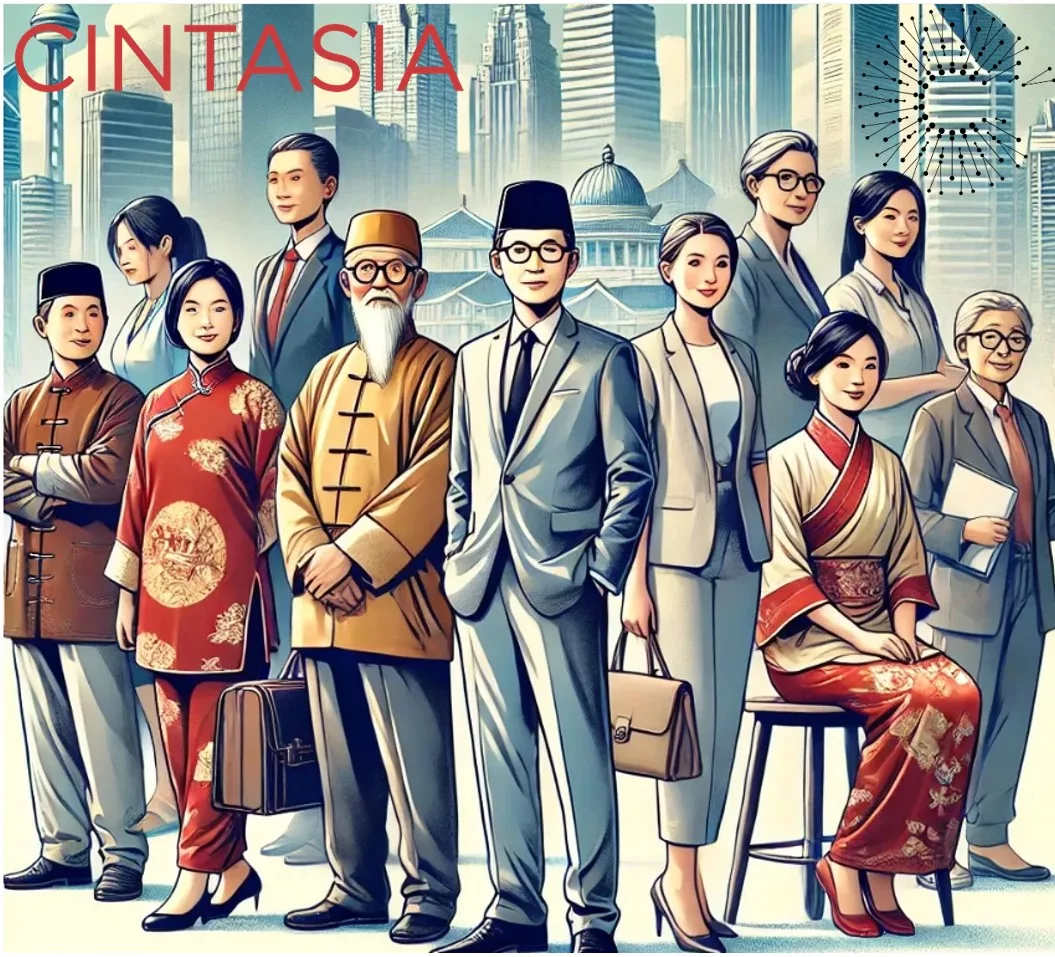2,2 min read –
Do the Chinese Control Business in Indonesia? –
Debunking this simplistic belief –
Reality is more complex –
Chinese Indonesians form a diverse and historically significant minority in Indonesia, with roots tracing back to the 13th century.
Their population, estimated at 2.8 million in the 2010 census and possibly up to 11 million according to broader estimates, represents 1% to 4% of Indonesia’s 275 million people.
This community is far from monolithic, encompassing distinct groups with varied socio-economic roles and histories.
The oversimplified notion that “business in Indonesia belongs to the Chinese” does not make much sense.
Which Chinese by the way? The Chinese citizens or corporations from China? Or individuals who self-identify as ethnic Chinese? How do you define ethnic identification?
Chinese migration to Indonesia began centuries ago, with early settlers arriving as traders during the Srivijaya and Majapahit eras.
Under Dutch colonial rule (17th-19th centuries), Chinese communities, including the Cina Benteng in Tangerang, were pivotal in trade and agriculture, often serving as intermediaries.
The Cina Benteng, descendants of early Hokkien settlers, assimilated with local Betawi culture, forming unique traditions.
The name Cina Benteng translates to “Chinese of the Fortress” in Indonesian, derived from their historical settlement near Dutch forts or benteng (fortresses) in Tangerang, west of Jakarta.
In contrast, totok Chinese, recent immigrants from China, often maintained stronger cultural ties to their homeland.
Post-independence, Chinese Indonesians faced discriminatory policies, such as the 1950s Benteng Program, which restricted their business activities.
And Suharto’s 1967-1998 New Order, which mandated assimilation and banned Chinese culture.
The stereotype of Chinese economic dominance stems from the success of a few tycoons, such as Mochtar Riady (Lippo); Eka Tjipta Widjaja (Sinar Mas); and Sudono Salim (Indofood and more).
However, this obscures the reality: many Chinese Indonesians are working-class or small-scale entrepreneurs, not tycoons.
By the 1950s, ethnic Chinese owned most retail stores, but government restrictions and anti-Chinese riots, notably in 1966 and 1998, targeted their businesses, revealing their vulnerability rather than dominance.
Parallels with Jewish communities in Europe are striking.
Both groups have been and are scapegoated during crises.
Like Jews, Chinese are admired for their economic aptitude yet feared and accused of disloyalty or conspiracy, as seen in Suharto’s anti-Chinese rhetoric.
This distorted dual perception fuels prejudice, despite their contributions to Indonesia’s economy and culture.
The term Cindo, a colloquial blend of “Cina” and “Indonesia,” reflects a younger generation’s embrace of hybrid identity, signaling integration.
Post-1998 reforms under Presidents Habibie and Wahid lifted discriminatory laws, allowing Chinese cultural expression.
Yet, lingering stereotypes and occasional violence underscore the need to recognize Chinese Indonesians’ diversity and resilience, debunking myths of uniform economic control.
When you approach a new country, a new culture, avoid simplistic beliefs.
Simplistic beliefs will not help you and will not impress the locals.
Instead, rely on your local expert, Cintasia.
We are Cintasia, and we help you develop your sales and operations successfully in Indonesia. We specialize in technology and industrial equipment.
PS: If you enjoyed this article, check out our blog for more. We have published 130+ other articles.
Go to www.cintasia.com/news-insights
Picture: Alvin H, on Medium (link below)
Sources: Cintasia, Grok
If you want to dig further, there is a nice article on Medium on this topic :
The Chindo Identity. Who are we? | by Econ For Introverts | Medium
